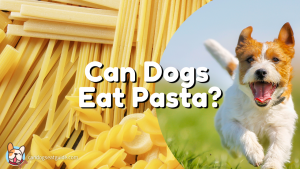Can dogs eat pickles?
I mean, we humans enjoy this flavorful, crunchy snack every now and then. But what if our pup starts looking at us and craving these too while we’re munching on them?
What would you do then?
Don’t worry.
In this proactive guide on discovering the world of pickles and what it means for your canine buddy, we will today look at answering the all-important question:
‘Can dogs eat pickles?’
Let’s dive in.
Can Dogs Eat Pickles: Are they Safe?
In one word, the answer is: no
Disappointed?
Don’t be.
Pickles are great for humans. Like, who doesn’t crave a pickle every now and then just to perk things up a bit? Hmm?
But dogs aren’t quite the same as us human beings.
Our bodies can take on a lot more stress when it comes to our digestive systems than our cute little doggies can.
Oh, and this includes all breeds. From the small and adorable little Havanese to big boys and girls like giant huskies. Although, as a general rule of thumb, smaller breeds are still more sensitive than larger breeds of dogs.
Okay. Back to the topic.
Why shouldn’t you be disappointed in this particular case?
It’s quite simple.
Yes, pickles are tasty, but they pose far greater health risks when it comes to dogs than when we talk about a human being having a pickle or two.
In fact, most veterinarians agree that while pickles do come with a lot of nutrition in them in the form of various minerals, the harms in this case far outweigh the benefits.
Simply put:
Pickles for humans: Yes
Pickles for dogs: No. Thank you.
Can Dogs Eat Pickles: Nutritional Perspective

In theory, something such as pickles would have been great for our furry friends to eat and enjoy.
In reality, however, we find that in addition to containing beneficial nutrition from vegetables, pickles also contain a very high sodium content.
Now, while dogs do need sodium in their daily diet. Their intake of it has to be very limited.
Not giving your dog the required dose of sodium could land them at the nearest vet’s emergency section. But giving them excess sodium, and you might find yourself going to the vet once again.
This is because the ideal percentage is 0.3% when it comes to sodium.
That is to say that your dog’s daily intake of sodium should be very minimal. This in turn allows us to understand that adding in a sodium-rich food such as pickles, could have disastrous effects on our dog’s digestive system and overall health.
Therefore, any so-called ‘nutrition’ your pet might get from something like pickles, could just as easily be substituted by a far healthier diet instead*.
Can Dogs Eat Pickles: What does a Typical Pickle Look Like?
In the western part of our world, a pickle typically looks like this:
Sliced cucumbers + Brine + Dill
Brine is a mixture of vinegar, salt, and water. And it is this very thing that allows the pickle to remain preserved for a very long time.
It is also the reason why cucumbers soaked in it don’t lose their ‘crunchiness’.
And finally, the dill is a herb belonging to the Apiaceae family, which tends to grow in the Eurasian region. This herb also acts as a spice and gives the pickle its flavorful texture.
Normally, vets would suggest that we give our dogs both, cucumbers, and dill. But when it comes to them in their pickled form, most experts tend to take a step back.
The high sodium content it would seem overrides everything else. And makes this snack a no-no when it comes to our precious little doggies.
On the other hand, if we do want to feed our buddy plain sliced cucumber then we can do so.
Similarly, a little garnish of chopped dill isn’t so bad either if brine is left out of the mix.
Can Dogs Eat Pickles: What about South Asian Pickles?

So far, we’ve discussed what ‘typical’ pickles look like. And if you’re someone from areas where these are the dominant pickle types then you have your answer.
But if you’re someone from say – a southeast Asian country or just a curious person who’s tried and tested different cuisines; you may be wondering something along the following lines:
Okay. So, dogs cannot eat cucumber pickles. But the world contains a hundred different types of pickles! What about the rest of them?
It’s like I said at the beginning of this article. Don’t worry. We’ve got you info-covered in all directions.
Whether it’s Rajasthani pickles or street food pickles, or the neat little factory-packed mixed veggie pickles in a jar- the answer to every single one is no.
This is because no matter what recipe is followed or where the vegetables in the pickle come from, the salt and spice content is always too high for a dog’s digestive system to bear with.
So.
The key takeaway from all this?
No matter where you are on the globe: Don’t feed your dog pickles!
Can Dogs Eat Pickles: Things to Look Out For
As it just so happens. Taking care of dogs can sometimes be more challenging than we initially realize. This means that they might have snuck up on some pickles while you weren’t looking and accidentally left the jar open.
If this does happen, the first step is to calm yourself. One pickle might not be as harmful to your dog.
However, if they’ve had a type with different seeds in it then you may want to be a little more concerned since seeds can lead to choking.
Symptoms of choking include:
- Distress;
- Pawing at the mouth;
- Excessive drooling;
- Pain;
- Breathlessness.
Please visit your nearest vet immediately after giving first aid should any of these symptoms arise.
Can Dogs Eat Pickles: Health Deterioration
Aside from getting choked- which let’s hope doesn’t happen, several long-term problems may develop if you continue choosing to feed your dog pickles.
These include stomach upset, leading to vomiting and diarrhea.
But that’s not it.
These conditions will likely arise from the laxative-like effect that many spices have.
The problems arising from the main source of worry- sodium, are far worse.
According to vets, too little sodium and your dog could lose neural functionality. But too much and they could become dehydrated.
Not only that but they may experience a thing known as bloating and gastrointestinal upset. In this problem, the stomach may distend outwards, leading to extreme pain for the dog. In most cases, bloat has been fatal when it comes to dogs.
To avoid this, therefore, you must keep your canine friend away from sodium-rich diets such as French fries, pickles, etc.
Can Dogs Eat Pickles: Video Guide
Can Dogs Eat Pickles: Fun Facts About Pickles
While the answer to ‘Can dogs eat pickles?’ will be a firm no from our side, ending this article on a bleak note about Bloat doesn’t really resonate with me.
So instead, here are a few cool things I recently learned about pickles and thought I might share with you too!
- The etymology of the word ‘pickle’ comes from the Dutch language in which to salt or brine something is known as pekel. However, linguists believe that the word might also have its roots in the German words pökelor pökeln.
- Cleopatra- or so the allegations go- would regularly eat pickles because she believed they would help keep her young and beautiful.
- Several emperors, including Napoleon, believed that preserved foods could help keep their army strong and would pay to preserve experts to cure large amounts of meats using the same pickling technique.
- The phrase, ‘in a pickle’ was actually coined by the great Shakespeare himself in his world renowned, ‘The Tempest’.
FAQs
Can dogs eat pickles soaked in oil?
No! That’s even more dangerous than brine.
Can dogs eat pickles as a treat?
No. Try going for healthy, alternative treats.
Can dogs eat pickles with other foods?
No. The sodium content does not get canceled out this way.
Can dogs eat pickles if they’re less processed?
Again, no. Some amount of curating will always be there no matter which brand you pick.
Can dogs eat pickles and get sick?
Yes. GI upset and sodium poisoning may occur if they do eat pickles.









